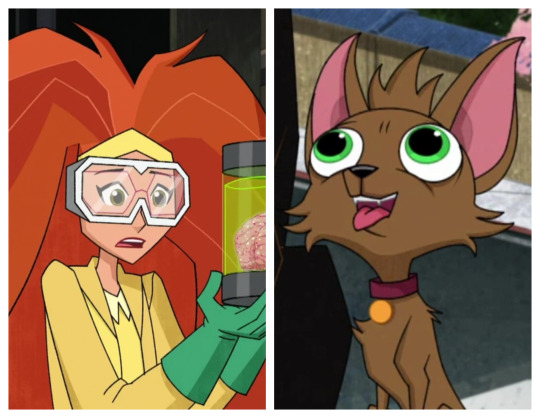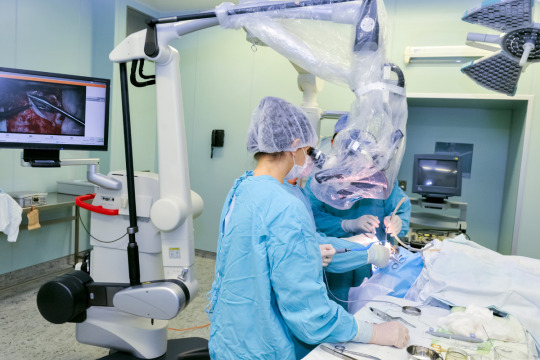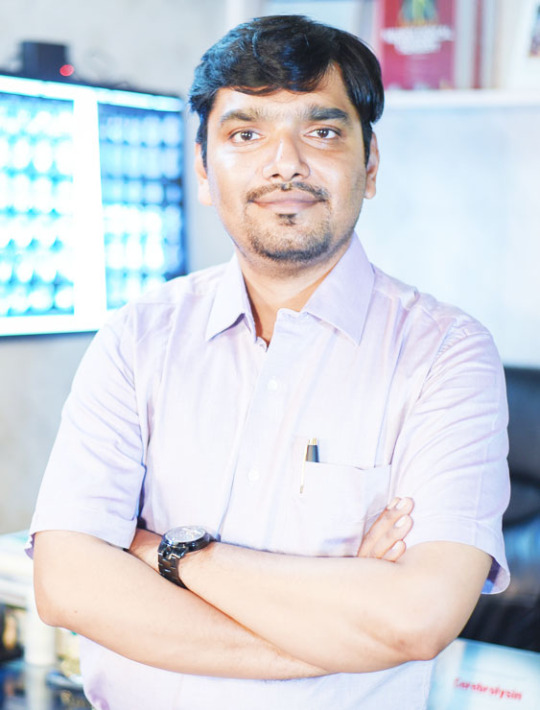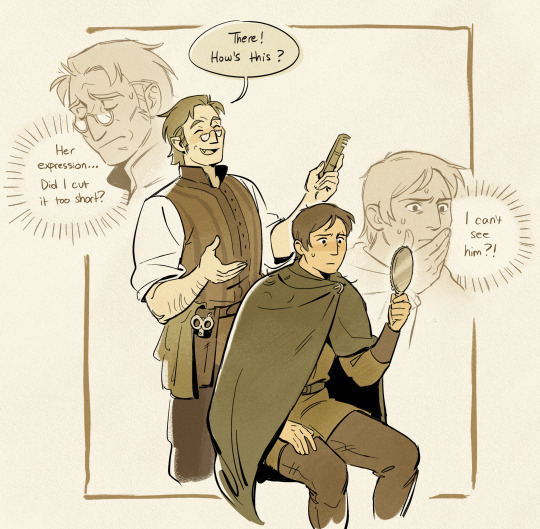#brain surgeon
Explore tagged Tumblr posts
Text
My hungry ass could NOT be a brain surgeon
3 notes
·
View notes
Text

The only Barbie vs. Oppenheimer that I’m itching to see.
(Don’t mind the brain; I don’t know what she’s doing with that.)
#big hero 6#big hero 6 the series#honey lemon#oppenheimer#barbie#pretend it's a nuke or something#go to the movies#brain surgeon
17 notes
·
View notes
Text

Dr. Yogesh Gupta is one of the best neurosurgeons in India, known for his expertise in brain and spine surgeries. With years of experience, he specializes in minimally invasive neurosurgical procedures, ensuring faster recovery and better outcomes. His advanced techniques and patient-centric approach make him highly trusted.
Visit dryogeshguptaneurosurgeon.com for more details.
#best spine surgeon in india#best neurosurgeon in india#neurosurgeon#spine surgeon in india#brain surgeon#spine surgeon#surgeon
0 notes
Text
How does Sabclinic have the Best Brain Specialist in Gurgaon, India?
Sabclinic is renowned for having the Best Brain Specialist in Gurgaon, providing expert care for a variety of neurological conditions. With a focus on advanced diagnostic techniques and personalized treatment plans, the brain specialist ensures optimal outcomes for patients. Whether treating brain disorders or performing complex surgeries, the specialist at Sabclinic combines years of experience with state-of-the-art technology, making the clinic a leading choice for those seeking exceptional care in brain health. Sabclinic’s reputation for excellence makes it the top destination for brain care in Gurgaon.
0 notes
Text
Virtual Consultations with Brain Surgeons Near Me: What to Expect
In recent years, the healthcare landscape has undergone a significant transformation, particularly in the realm of specialized medical services. One area that has seen considerable advancements is neurosurgery, where the emergence of virtual consultations has made it easier for patients to access expert care without the need for physical appointments. This article delves into what patients can expect when seeking virtual consultations with brain surgeons near them, ensuring they are well-informed and prepared for this innovative approach to healthcare.

The Rise of Virtual Consultations in Neurosurgery
The shift towards virtual consultations represents a broader trend within the medical field, where technology is leveraged to enhance patient experience and improve accessibility. Patients no longer need to travel long distances to meet with leading experts in neurosurgery; instead, they can connect with brain surgeons from the comfort of their homes. This approach not only saves time but also reduces the stress often associated with hospital visits.
Moreover, virtual consultations can be particularly beneficial for individuals with mobility issues or those living in remote areas. For many patients, finding a brain surgeon near me can be a daunting task, especially if there are limited options available locally. Virtual consultations break down these geographical barriers, allowing patients to consult with top-tier specialists regardless of their location.
Preparing for Your Virtual Consultation
When preparing for a virtual consultation with a brain surgeon, there are several key steps that patients should take to ensure a productive experience. Firstly, it is essential to gather all pertinent medical records and imaging studies, such as MRIs or CT scans. Having this information readily available will enable the surgeon to make a more accurate assessment of the patient's condition and provide tailored recommendations.
Additionally, patients should prepare a list of questions or concerns they wish to address during the consultation. This proactive approach not only helps in maximizing the time spent with the surgeon but also ensures that all important topics are covered. Patients should also check their technology setup prior to the consultation, ensuring that their internet connection is stable and that they have access to a device equipped with a camera and microphone.
What to Expect During the Consultation
Virtual consultations typically begin with an introduction, where the brain surgeon will discuss the patient's medical history and the purpose of the meeting. The surgeon may ask a series of questions to gain a comprehensive understanding of the patient's symptoms and previous treatments. Following this, the surgeon will review any uploaded medical records and imaging studies, providing insights based on the latest medical knowledge and their expertise.
Throughout the consultation, patients can expect a collaborative discussion regarding potential treatment options. The brain surgeon may outline various approaches, including both surgical and non-surgical options, and help the patient weigh the benefits and risks associated with each. This dialogue is crucial, as it empowers patients to make informed decisions about their health in partnership with their healthcare provider.
The Benefits of Virtual Consultations
One of the most significant advantages of virtual consultations is the increased accessibility to specialized care. Patients who may have previously felt overwhelmed by the prospect of traveling to a distant hospital can now receive expert opinions from the convenience of their homes. This increased accessibility can lead to earlier diagnosis and intervention, which is particularly important in the field of neurosurgery where timely treatment can make a substantial difference in outcomes.
Virtual consultations also offer flexibility. Patients can schedule appointments at times that suit their lives, reducing the need to take time off work or arrange for childcare. Furthermore, the ability to consult with multiple specialists virtually enables patients to gather diverse opinions before making critical medical decisions. This aspect is particularly valuable when navigating complex conditions that may require a multidisciplinary approach.
Follow-up Care and Ongoing Support
After the initial virtual consultation, patients can expect a clear plan for follow-up care. Depending on the condition, the brain surgeon may recommend additional tests, referrals to other specialists, or a follow-up consultation to monitor progress. Many surgeons also provide ongoing support through secure messaging platforms, allowing patients to ask questions and seek guidance as they navigate their treatment journey.
It’s important for patients to remain engaged with their healthcare team during this time. Keeping an open line of communication ensures that any emerging concerns can be addressed promptly. Additionally, patients should be proactive in adhering to the treatment plan discussed during the consultation, whether it involves medication management, lifestyle changes, or further diagnostic testing.
Conclusion
As the demand for specialized medical care continues to grow, the advent of virtual consultations with brain surgeons represents a significant leap forward in patient accessibility and convenience. This innovative approach not only allows for expert advice from the comfort of home but also fosters a collaborative relationship between patients and their healthcare providers.
For those seeking a trusted partner in their neurosurgical journey, Robert Louis MD offers comprehensive virtual consultations that cater to individual needs and circumstances. By prioritizing patient engagement and personalized care, Robert Louis MD stands out as a leader in the field, ensuring that patients receive the expert guidance they deserve. Whether you are exploring treatment options or seeking a second opinion, reaching out to Robert Louis MD can be the first step towards a healthier future.
0 notes
Text

"Gifted Hands" by Ben Carson
Thank you @the_reading_toothfairy for the reread! ❤️
#memoir#gifted hands#ben carson#dr. ben carson#surgeon#surgery#brain surgery#brain surgeon#doctor#doctor stories#nonfiction#true story
0 notes
Text
Brain Tumor Surgery in Tirunelveli

Brain Tumor
This is a disease that is brought about by the formation of a growth in the brain tissues. These tumors can be benign in nature that is they are not cancerous or malignant in nature that is they are cancerous.
A brain tumor is a growth of abnormal cells within the brain causing a mass of tissue – many of which are cancerous – Its cause is still unknown but there are factors that make someone prone to developing a brain tumor such as genetic factors, radiation, or if someone has a history of this disease in their family.
The signs of the presence of a brain tumor depend on the size of the tumor; the area of the brain it occupies; and the rate of its growth. Some of the early signs may be a headache, seizure, and difficulty in composing thoughts, blurring of vision or weakness in some of the body parts.
In many cases, brain tumor treatment follows a surgery to remove as large a part of the malignant growth as is safely possible. Surgery of the brain tumor is a difficult one that needs professionalism and technology equipment. The objective of the surgery is to resect the tumor and reduce the associated damage to the neighboring cerebral parenchyma.
Shifa Hospital is one of the hospitals to turn to when you are or a love one is diagnosed with a brain tumor that requires surgery in Tirunelveli. Shifa Hospital’s neurosurgery doctor Senthil Babu neurosurgeon in Tirunelveli is also an expert in removing tumor in the brain with minimal damage. This is because you will find the best physical and calling care at Shifa Hospital to enable you to regain your health.
#hospital#health#healthcare#health tips#healthylifestyle#shifahospitals#tirunelveli#health and wellness#health & fitness#brain tumor#brain disease#brain surgery#brain surgeon#neurosurgeon#neurosurgery
1 note
·
View note
Text
Brain Tumor Myths Debunked: Not All Tumors Are Cancerous & Singapore Surgery Options
Confused about brain tumors? Learn the truth: not all are cancerous! Explore brain tumor surgery options available in Singapore. Get informed and take control of your health journey.
#open brain surgery singapore#brain surgeon#brain tumor#brain tumour treatments in Singapore#brain tumour
0 notes
Text
dr. reghabi is objectively such a funny character
she gave people fucked up corporate lobotomies until one day she apparently went “wait… what if this is…. wrong” and decided to invent fucked up lobotomy 2, electric boogaloo, to reverse the first one. but also it might kill you
mark saw his innie’s bff die in front of his eyes as a side effect of fucked up lobotomy 2 and her reaction was to go “well maybe he wouldn’t have died, if he had listened to me”
she went from “i hate the term innie, it’s so infantilizing” to “your innie is a baby, mark, a literal baby, two years old, and you brought him into this world without his permission” in like one sentence
she followed mark into a weird location to convince him to try fucked up lobotomy 2 with killer arguments like “i’m better at it now”, then proceeded to do the procedure in his basement
she moved into his house seemingly without asking
she also made mark acessory to murder within like one hour of knowing each other though that’s less on her and more on the situation
3K notes
·
View notes
Text
Neurosurgeons: The Master of the Nervous System
In the world of healthcare, few specialists possess the expertise and precision required for the intricate field of neurosurgery. Dr. Peter Lucas stands out as an exemplary figure, earning recognition as a true master of the nervous system. With unparalleled dedication and skills, he has made remarkable contributions to the field of neurosurgery, revolutionizing the way we approach neurological conditions.
Dr Peter Geoffrey Lucas’s journey in the realm of neurosurgery is a testament to his unwavering commitment to patient care and the relentless pursuit of excellence. With years of rigorous training and practical experience, he has honed his abilities to address complex neurological disorders, such as brain tumors, spine injuries, and neurovascular conditions.
What sets Dr. Peter Geoffrey Lucas apart is not only his technical proficiency but also his compassionate approach to patient care. He takes the time to connect with his patients, ensuring that they understand their conditions and treatment options. This level of empathy creates a sense of trust and reassurance, allowing patients to embark on their medical journey with confidence.

Dr. Lucas’s impact on neurosurgery extends beyond the operating room. He actively engages in research, contributing to the evolution of surgical techniques and the development of cutting-edge treatments. His innovative approaches have opened new doors for patients, offering hope where previously there might have been none.
When it comes to mastering the nervous system, Dr. Lucas leaves no stone unturned. He embraces the latest advancements in medical technology, combining traditional surgical methods with state-of-the-art equipment to enhance patient outcomes. His proficiency in minimally invasive procedures has reduced recovery times and minimized patient discomfort, marking a significant milestone in the field of neurosurgery.
In the ever-evolving world of medicine, Peter Lucas Neurosurgeon remains at the forefront, consistently delivering results that transform lives. His passion for neurosurgery and the mastery he has achieved in understanding and treating the nervous system are a source of hope for countless individuals facing daunting neurological challenges.
In conclusion, Dr. Peter Lucas is not just a neurosurgeon but a visionary in the realm of neurosurgery. His journey is characterized by a commitment to excellence, compassion, and innovation. His work stands as a beacon of hope for patients seeking relief from neurological conditions, demonstrating that mastery of the nervous system can lead to remarkable transformations in healthcare.
#neurosurgeon#drpeterlucas#petergeoffreylucas#dr lucas peter lucas neurosurgeon#peter lucas neurosurgeon#brain surgeon#Dr Peter Lucas#Nervous system#Peter Lucas
0 notes
Text
Brain Surgeon, Neurosurgeon and Spine Surgeon in Meerut (UP) India
Brain Surgeon, Spine and Neurosurgeon Surgeon in Meerut

Dr. Amit Bindal
MBBS, M S, Mch ( neurosurgery)
Expert Spine and Neurosurgeon, India.
15 years of experience.
Consultant Spine surgeon in meerut and Neurosurgeon in Meerut at Bindal Brain and Spine Clinics.
Dr Amit Bindal is the best neurosurgeon in western UP and Delhi. He practices at Meerut for last 15 years.
He’s young and dynamic Neurosurgeon. He is well trained in all aspects of
Brain Surgery,
Brain Tumor treatment and Surgery,
Spine Surgery,
Minimally Invasive Spine Surgery,
Endoscopic Spine Surgery,
Microdissectomy,
Slip Disc Treatment and Surgery,
Spine Tumor Treatment and Surgery,
Spine fracture treatment and operation,
Treatment of spondylolisthesis and surgery
Spinal TB treatment and operation.
Brain TB treatment and operation
Head Injury treatment and surgery
Treatment and operation for clot in brain or brain hemorrhage.
Back pain treatment
Cervical pain treatment and surgery
Cervical Spondylosis and myelopathy
Epilepsy treatment
Shunt surgery for Hydrocephalus or water in brain
ETV( Endoscopic Third Ventriculostomy) for Obstructive Hydrocephalus
Brain Stroke treatment
Aneurysmal clipping
Surgery for arteriovenous malformation
A bright student throughout his education. He has to his name various tedious procedures involving complex, brain and spine diseases like brain tumor and spinal cord tumor.
He has done his MCh degree in the Neurosurgery from the prestigious King George medical College at Lucknow in 2009.
After completing his studies, he went for fellowship in endoscopic brain surgery and spine surgery.
Since then he is tirelessly and honestly working for the treatment of patients having problems requiring expert Neurological consultation and various Neurosurgical procedures for the treatment of brain diseases. Dr. Amit Bindal is a top neurosurgeon in Meerut and Delhi.
Work Experience
After completing his education he started practicing in Meerut and has done various Neurosurgical procedures with satisfaction of the patients and with excellent outcomes.
Education & Training
He has worked very hard to earn the following qualifications.
MBBS from Government Medical College, Surat 2004.
MS(General Surgery) – Government Medical College, Surat (2008).
M.Ch. (Neuro Surgery) – KG’s Medical College, Lucknow (2012).
Fellowship in endoscopic brain and spine surgery.
Speciality Interest
Comprehensive Management of all Spine related disorders.
Minimal Access Spine surgery.
Endoscopic Neurosurgery.
Complex Spinal Surgery Including Craniovertebral junction anomaly.
Microsurgical excision of Brain Tumours.
Neuroendoscopy especially Transnasal Endoscopic Pituitary tumours.
Minimal Invasive Spine Surgery (MISS).
Research and assignments
Outcome of surgery for operable supratentorial mass lesions in patients presenting with decerebration following severe
Head injury: A retrospective analysis of factors affecting outcome.
Presented at National neurotrauma conference at ranchi in year 2011.
Role of advanced MRI imaging in glioma grading and prognostication.
Memberships
Member of Neurological Society of India.
Member of Neurological Surgeons Society of India.
Member of Association of Spine Surgeons of India.
Member of UP UK Neuroscience Society.
Indian Medical Association (IMA).
International Publication
Bindal A, Chandra N, Ojha BK, Chandra A, Singh SK, Srivastava C. Outcome of surgery for operable supratentorial mass lesions in patients presenting with decerebration following severe head injury: A retrospective analysis of factors affecting outcome. Asian J Neurosurg. 2015;10(3):145-8
0 notes
Text
Who is the Best Neurosurgeon in India?

When it comes to a patient needing neurological treatment, picking the right neurosurgeon and hospital can be a great influence. Neurosurgery as a field in India is lucky to have many talented professionals, but the popularity of Dr. Yogesh Gupta is phenomenal. Eminent in his own right for outstanding neurosurgical skills in difficult brain and spine management cases, Dr. Gupta is affiliated with the best spine hospital in Jaipur, Rajasthan. The best Neurosurgeon in India Dr. Yogesh Gupta must become a reliable figure for any patient in India who needs treatment at Priyush Neuro and Super Speciality Hospital for the Best spine surgery in Jaipur.
Dr. Yogesh Gupta: Redefining Neurosurgery
Educational Excellence
Dr. Yogesh Gupta’s medical career started at the SMS Medical College in Jaipur, where a bright future in the neurosurgical field was beginning. For consolidation of his knowledge, he trained with elite like PGIMER Chandigarh and Ram Manohar Lohiya Hospital New Delhi, Dr. Gupta has also received a strong educational grounding that enables him to treat patient's Health and become the best spine surgeon in India at the best spine hospital in Jaipur, Rajasthan, with excellence and promptness in treating illnesses. Due to being associated with prominent healthcare centres such as Priyush Neuro and Super Speciality Hospital one of the best spine hospitals in Jaipur, the customer base of the best spine surgery hospital in Jaipur appears ever-growing due to patients who seek the best spine surgeon in India for surgery performed by him.
Expertise and Specialization
Dr. Gupta specializes in a broad range of procedures, including:
• Microsurgery and Endo Surgery for Brain Tumors: The approach he has devised renders highly accurate and low-impact effects.
• Trauma and Spine Surgery: His practices in trauma management have brought dramatic changes in patients' lives.
Minimally Invasive Spine Surgery: Specialising in slipped discs and spinal tumours among many others, Dr. Yogesh Gupta has pioneered techniques of minimally invasive procedures and become the best spine surgeon in India, giving patients a faster recovery process and less pain.
His Accomplishments
Their professional experience is supported by his achievement of performing more than eight thousand spine surgery operations. The collaboration has also availed meaningful treatment to patients that the treatment is done by one of the best spine surgeons in India at the best spine hospital in Jaipur - Priyush Neuro and Super Speciality Hospital. Such honours as the Best Neurosurgeon in India received from SLCS and MSS prove his exceptional performance.
Decoding Dr. Yogesh Gupta: There Has to Be Something Special
Dr. Gupta has both skills and experience as the best neurosurgeon, best brain surgeon, best spine surgeon and a heart for helping people in all means. It makes him the best neurosurgeon in India. Here’s what makes him the preferred choice:
• Modern Techniques: Minimally invasive spine surgery implies that patients have a quick recovery and less general discomfort. It is made possible by Dr. Gupta. His techniques are being met at the best spine hospital in Jaipur, Rajasthan.
• Extensive Experience: As the best Neurosurgeon in India, Dr. Gupta has had over 14,000 surgeries and has evidenced practical insight into complex specific assignments at the best Neuro and Spine hospital in Jaipur, Rajasthan
Methods for Selecting the Best Neurosurgeon and Hospital in India:
Choosing the best neurosurgeon and facility must be one of the most important decisions anyone makes. Here’s why Dr. Yogesh Gupta becoming one of the best spine surgeons in India, should be a priority:
1. Expertise in Complex Cases: Dr. Gupta counts success in his complex brain and spine surgeries. It guarantees positive outcomes when you rush to an emergency to one of the spine surgeons in India.
2. Access to Advanced Facilities: The best spine surgeon in India has become super friendly with all the modern technology that has assisted the doctor in performing surgeries wonderfully.
3. Patient-Centric Approach: Deserving people's trust, Dr. Gupta works very hard to make a difference in patients’ lives.
Final Thoughts
The health sector in India has benefited from the best neurosurgeons in India such as Dr Yogesh Gupta. He knows the provision of contemporary facilities in Priyush Neuro and Super Speciality Hospital, one of the best spine hospitals in Jaipur, Rajasthan. Whether it involved minimal invasive spine surgery or dealing with life-threatening brain surgery, the work that Dr. Gupta performs as the best spine surgeon in India at the best spine hospital in Jaipur shows his dedication.
If you want to seek a high-end neurosurgical treatment, contact Dr Yogesh Gupta, one of the best neurosurgeons in India and the best spine surgeon in India. Altogether, their experience and creativity augur well for patients with complicated neurological cases in the future.
#best spine surgeon in india#brain surgeon#best neurosurgeon in india#brain doctor in india#best spine doctor in india#spine surgeon in india#spine surgeon#surgeon#neurosurgeon#doctor
0 notes
Text
How does Sabclinic have the Best Brain Doctor in Gurgaon, India?
Sabclinic is home to the Best Brain Doctor in Gurgaon, offering specialized care for a wide range of neurological conditions. With years of expertise and a focus on cutting-edge treatments, the brain doctor at Sabclinic ensures accurate diagnoses and effective treatment plans for patients dealing with complex brain disorders. The clinic's patient-centered approach, combined with advanced technology, sets it apart as a top choice for brain care in Gurgaon, making it a trusted destination for those seeking the best in brain health management.
0 notes
Text

In which Milva asks Regis for a trim, and she finds out about the vampire-mirror phenomenon
#the witcher books#the witcher#milva barring#emiel regis#i realized i've never drawn milva with short hair#and thought “what if regis gave her a haircut..”#imagining that this happened sometime in beauclair...#forever sad that sapkowski did not write any accounts of regis doing the hanza's hair btw#the man is a barber-surgeon that's half of his profession‼️#imagine regis and dandelion discussing hair styling#or regis lending geralt a razor bc his beard is growing in again#these are not original ideas i'm sure there are fics out there but. i have regis on the brain#magpie draws
1K notes
·
View notes
Text


SEVERANCE 2.06
#severance#severanceedit#severance spoilers#*#hello now it's devon's turn to cheat on their partner! with dangerous brain surgeon lady!!
625 notes
·
View notes